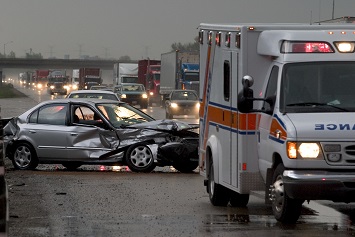National Safety Council (NSC) calculations indicate 164 people may be killed on the road during the Fourth of July holiday period, and an additional 18,600 may be seriously injured in crashes. Take steps to ensure that you and your employees don’t become a part of these statistics.
These estimates are nearly 4% higher than the actual number of deaths—157—that occurred in 2012, the last time July 4 fell on a Wednesday. NSC urges motorists to be particularly vigilant about impaired drivers, and to designate sober drivers themselves. The Council’s analysis shows during the 2016 Independence Day period, 41% of fatalities involved an alcohol-impaired driver, the highest percentage among all the major holidays.
The one-day holiday period this year will begin at 6 p.m. ET Tuesday, July 3, and will end at 11:59 p.m. ET Wednesday, July 4.
“By sharing these estimates, the National Safety Council hopes to highlight the importance of being a safe, sober and attentive driver so that everyone can safely celebrate this July 4 holiday,” said Deborah A.P. Hersman, president and CEO of the NSC. “Independence Day should be about spending time with loved ones and watching fireworks, not about dealing with the tragic aftermath of a car crash.”
Unintentional, preventable injuries—commonly known as “accidents”—claimed a record high 161,374 lives in 2016 to become the third leading cause of death in the United States for the first time in recorded history. In fact, 2016 marked a 14% increase in roadway deaths since 2014—the largest two-year jump in 53 years.
Drivers can take measures to protect themselves. Tips to ensure a safer holiday weekend include:
- Practicing defensive driving. Buckle up, designate a sober driver or arrange alternative transportation, get plenty of sleep to avoid fatigue, and drive attentively, avoiding distractions.
- Recognizing the dangers of drugged driving, including impairment from prescription opioids.
- Staying engaged in teens’ driving habits.
- Learning about your vehicle’s safety systems and how to use them.
- Fixing recalls immediately. Visit checktoprotect.org to ensure your vehicle does not have an open recall.
- Asking lawmakers and state leaders to protect travelers on state roadways. Read the State of Safety report to find out which states have the strongest and weakest traffic safety laws.
- Joining the Road to Zero coalition to understand how safety professionals are addressing motor vehicle fatalities. Visit nsc.org/roadtozero to get involved.
- Looking before you lock a vehicle to ensure no child is left behind in the back seat. At least 18 kids have died in hot cars this year.
Supplemental information about the NSC motor vehicle fatality estimates for the July 4 holiday period can be found here.

